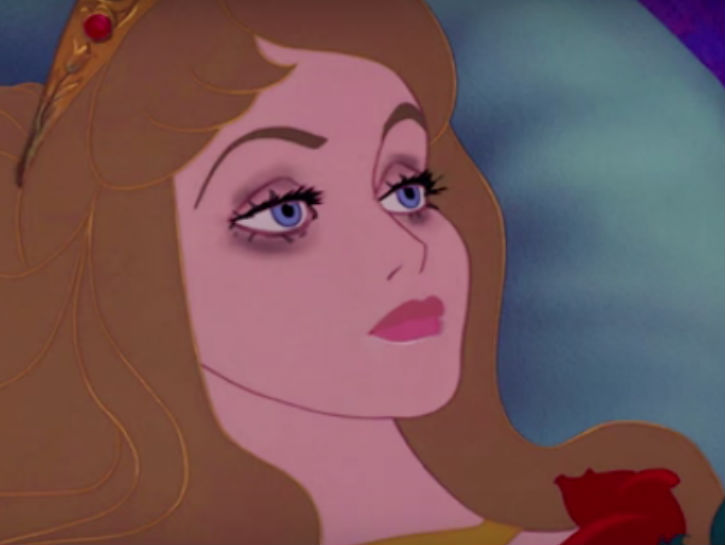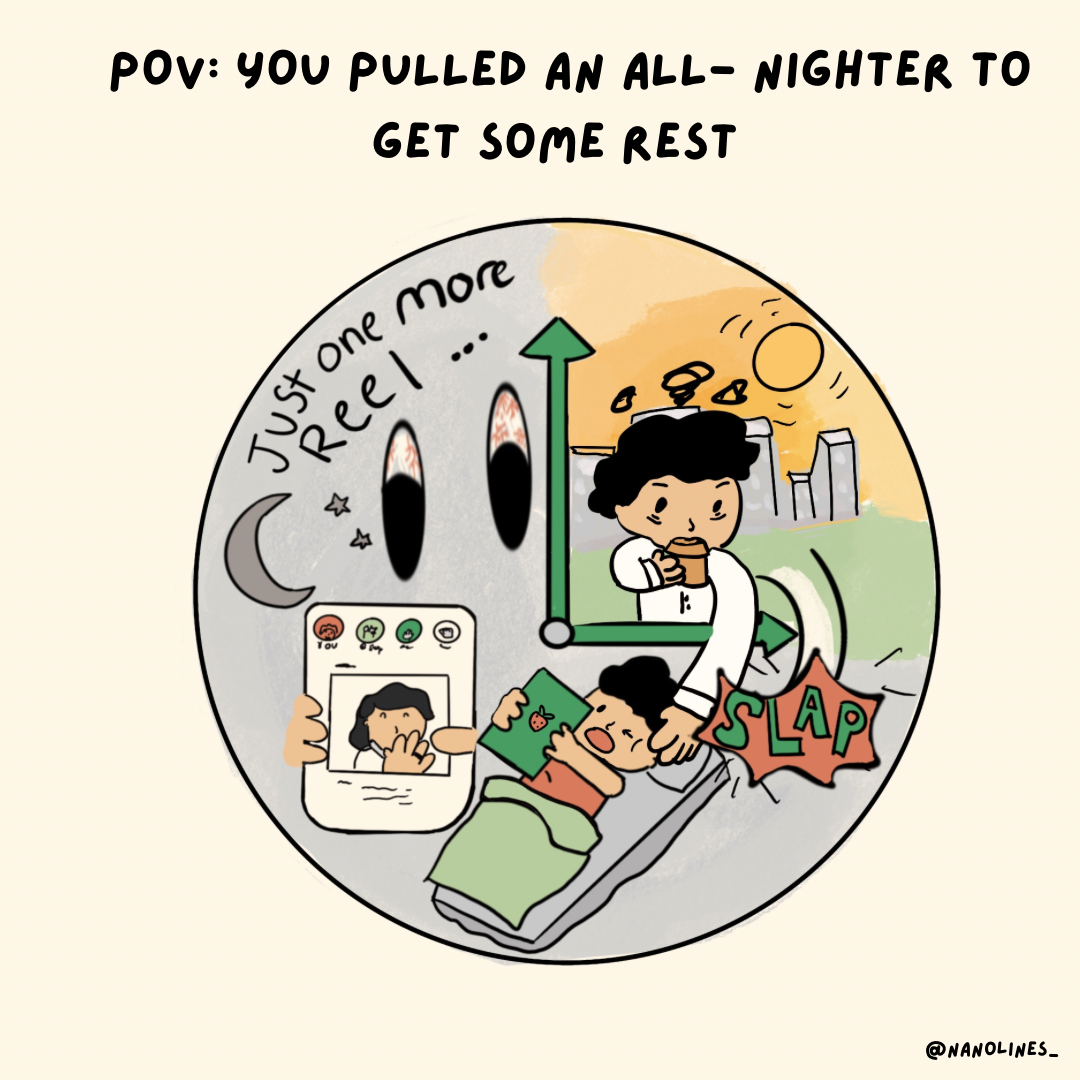🛌 Rebellion against sleep still going strong

Find out more and sign up for Thrive at bt.sg/thrive
💤 Revenge bedtime procrastination
Originating from a Chinese expression – “bao fu xing ao ye” – the catchy term was popularised in a viral tweet by journalist Daphne Lee in 2020. She described it as a phenomenon where “people who don’t have much control over their daytime life refuse to sleep early in order to regain some sense of freedom during late night hours”.
Finally! Those who spend the bulk of their day in the office or in school could articulate their nightly struggle with pushing back sleep to delay their daily routine from repeating – 😔 if only for a few hours.
In Singapore, a group of Nanyang Technological University undergraduates surveyed 300 working adults (aged 22 to 35) last October on this particular phenomenon. Some 64 per cent of respondents said they engage in revenge bedtime procrastination at least four times a week.
An earlier study among Singaporean adolescents, university students and working adults found more than half of the 321 respondents frequently go to bed later than expected.
Respondents in the study described needing time to relax after an entire day of work, family duties and chores. As one respondent put it: “Watching videos, reading online. That keeps me happy.”

But the lack of shut-eye can come at a cost. Not having enough sleep can affect your concentration and energy levels the next day, which can be particularly dangerous if you drive (drowsiness could be just as dangerous as drink driving).
Bedtime procrastination can be a serious problem, psychiatrist Lim Boon Leng tells Thrive. Dr Lim, who runs a private practice in Gleneagles Medical Centre, has seen patients with sleep procrastination issues, particularly students and parents.
Irregular sleep routines and poor sleep hygiene lead to longer-term insomnia, he says. And that can lead to a slew of other health problems down the road – affecting your skin, increasing your risk of dying, and even impairing your sex drive.
Already, Singaporeans are among the most sleep-deprived in the world. As with everything bad in the world, that’s been made worse by the pandemic.

Sometimes, sleep procrastination can be a sign of an underlying mental illness, says Dr Lim.
“In attention-deficit/hyperactivity disorder (ADHD), an individual may procrastinate on their work in the day and end up delaying the rest of his activities late into the night,” he says. “Sufferers of bipolar disorder may also find themselves having unusual energy levels and less need to sleep, and therefore stay awake doing activities late into the night.”
Besides mental health conditions, revenge sleep procrastination could also be the result of people wanting to be overly productive and sleeping less because they feel like they are not doing enough, Dr Lim adds.
“They deal with their main work during the day and only have time (at night) for their side hustles, learning new things… or even just catching up on new trends, thereby sacrificing their sleep.”
🤼 Take back control
While it may be tempting to sleep less to free up time to get things done, the lethargy you feel the next day from the lack of rest may counterintuitively lead to more time being spent at work, says Dr Lim.
Here are some strategies to break out of that vicious cycle and reclaim those precious hours of shut-eye.
Carve out time for yourself – and be strict with it: You might think that leisure time may not be as crucial as work or chores, but the fact that you’re sacrificing sleep over it shows much you actually value it. Ensure that leisure time is a designated part of your day, just like how you block off time for assignments and meetings.
Relook at your schedule: Since having a packed day is often the root of revenge sleep procrastination, take a close look at your daytime schedule. Unleash your inner Marie Kondo and cut out the things that aren’t important, or are leaving you unfulfilled and unhappy.
Do things in the day that will help your sleep: Exercising regularly (and preferably not too close to bedtime) can help you fall asleep more quickly, and improve your sleep quality. Get some sun in the morning to regulate your circadian rhythm. Steer clear of caffeine after 3 pm and avoid taking evening naps.
Practise good sleep hygiene: Go to bed and wake up at the same time every morning so that your body naturally adjusts and begins to feel tired at the right time every night. Have a pre-bedtime routine – reading a few pages of a novel, for example – that doesn’t involve staring at an electronic screen or anything overly stimulating.

When it comes to sleep, what works for one person may not work for someone else. And while we all know the importance of at least 7-8 hours of shut-eye every night, some of us in high-pressure jobs just can’t afford to sleep more.
Unfortunately, says Dr Lim, it’s up to each of us to control our own sleep routine and to learn to prioritise the activities we think are most important to us. “We have to accept that we only have 24 hours in a day, and we cannot do everything.”
TL;DR:
Revenge sleep procrastination is more common than we think
It can be a serious problem, leading to longer-term insomnia and health risks
Reclaim free time for yourself the healthy way by designating leisure time in your schedule
Prioritise activities in the day that just aren’t sparking joy
Practise good habits, in the day and before bedtime, that will improve your sleep
KEYWORDS IN THIS ARTICLE
BT is now on Telegram!
For daily updates on weekdays and specially selected content for the weekend. Subscribe to t.me/BizTimes
Companies & Markets
Amazon breaks into Europe 5G networks with Telefonica cloud deal
Nanjing Xinjiekou Department Store announces May 23 EGM; Cordlife seeking legal advice
Olam tops Louis Dreyfus’ offer for Australia’s Namoi Cotton as takeover battle heats up
US revokes Intel, Qualcomm’s export licenses to sell to China’s Huawei: sources
Global car giants seek tech allies in China’s cutthroat EV market
Cutting the cord?: Events leading up to Cordlife’s MOH suspension and arrests of its directors, ex-group CEO
